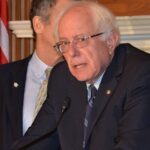





President Donald Trump has taken decisive action by dismissing Rohit Chopra from his post as director of the Consumer Financial Protection Bureau, a move that highlights ongoing tensions around this federal watchdog agency.
NPR reported that Trump's dismissal of Chopra signals a significant change in leadership at the CFPB, which has been a source of debate since its inception, especially concerning its unique funding method independent of Congress.
In 2021, Chopra was appointed by then-President Joe Biden to lead the CFPB, an agency established in 2010 under the Dodd-Frank Act, designed to curb the types of financial practices that led to the 2008 crisis.
Its role as an independent body within the Federal Reserve allows it a level of autonomy rare among federal agencies, particularly due to its budget, which is shielded from congressional appropriations.
Chopra's tenure has been marked by active efforts to hold financial institutions accountable. During his leadership, the CFPB initiated legal proceedings against financial companies, most notably a lawsuit filed in December against Zelle and several major banks for alleged consumer fraud issues.
Consumer advocacy groups have praised his efforts to champion transparency and promote competition within the financial sector.
The financial structure of the CFPB has been a point of contention, especially among Republican lawmakers. The Supreme Court's 2020 ruling provided the president with the ability to remove the CFPB director at their discretion, despite the original structure imposing a five-year term for the position. This ruling laid the groundwork for President Trump's recent dismissal of Chopra.
Republican Senator Tim Scott, a member of the Senate Banking Committee, has been a vocal critic of the CFPB's financial independence.
He has argued that it is "unacceptable" for the agency to operate with substantial budgetary autonomy, suggesting that reforms are needed to align its funding with other federal agencies that are subject to congressional budgeting processes.
Chopra himself has defended the CFPB's mission and operations, notably emphasizing the agency's role in countering the influence of large corporations over daily lives. His supporters argue that under his leadership, the bureau focused on championing consumer protection, probing into issues like deceptive financial practices and hidden fees.
The Consumer Bankers Association has added its voice to the calls for reform, urging the incoming administration to consider changes that could enhance the regulatory stability and credibility of the CFPB.
Despite recognizing the bureau's permanence, banks still see room for structural adjustments to help address ongoing concerns about its financial independence and regulatory approach.
Rohit Chopra's efforts have been acknowledged for addressing various consumer financial issues and fighting against corporate evasions.
Adam Rust, a vocal supporter of the CFPB's work, stated that under Chopra's leadership, the bureau has diligently fought "junk fees, repeat offenders, big tech evasions, and corporate deception," while advocating for financial competition and accountability.
As the CFPB faces a leadership transition, the debate over its funding and structural organization continues to simmer. Proponents of the agency underscore its necessity in preventing the repetition of past financial crises and protecting consumers from unfair practices by powerful financial entities.
The replacement of Chopra is seen as an opportunity for those within the financial sector and federal oversight to reconsider the agency's direction and operational frameworks. Ensuring that it serves its foundational purpose without stepping beyond efficient regulatory boundaries remains a core challenge.
Reform discussions often revolve around the necessity of balancing the agency's mission of safeguarding consumers while ensuring that its independence does not lead to unchecked power. The unique funding situation provides a level of independence that some argue is necessary for effective regulation but continues to draw scrutiny.
As this transition unfolds, the role of the CFPB, especially in the wake of financial crises, remains pivotal. Its mission to prevent consumer exploitation and ensure financial health receives both support and skepticism from varied stakeholders.
The departure of Chopra may bring about shifts not only in CFPB's leadership but also in regulatory approaches and priorities. The financial industry, keeping a close eye on these developments, anticipates potential impacts on compliance practices and regulatory expectations.
As the Trump administration appoints a new director, the focus will be on how these changes could affect the way financial regulations are enforced and how companies adapt to evolving expectations. With the groundwork laid for a shift in direction, stakeholders await the forthcoming regulatory landscape adjustments.



